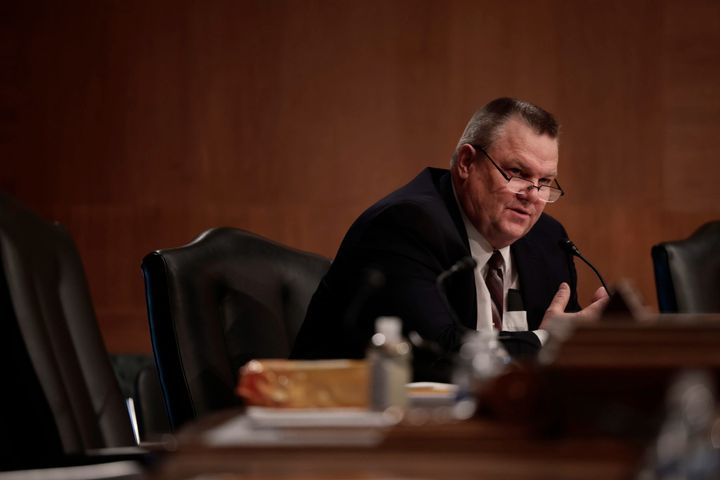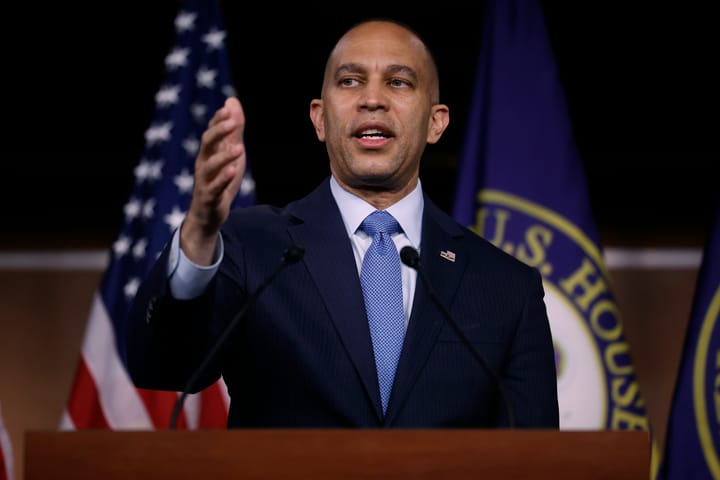Biden’s pick for leading the Office of the Comptroller of the Currency, Saule Omarova, withdrew from the nominating process this week. Omarova, who was raised in the Soviet Union, was repeatedly attacked by Banking Committee Republicans as a communist, but that’s not why she was forced to withdraw.
Omarova had to withdraw because several bank-funded Democrats decided months ago to oppose her. Back in October, Banking Committee member Sen. Jon Tester (D-Mont.) became the first Democrat to tell reporters that he had “concerns” about the nominee over her academic work that is supportive of the federal government having an increased role in providing banking services. Because the Banking Committee is evenly divided between the two parties, Omarova’s nomination could not have advanced to the full Senate without unanimous Democratic support.
Tester’s public image is of a populist farmer who stands for working-class rural America, but his actions as a legislator are often more aligned with Wall Street. He has sponsored or cosponsored dozens of bills impacting the financial industry, including some that would enhance consumer protections and are supported by progressives like Sen. Bernie Sanders (I-Vt.). But often over the years, Tester has been one of a handful of Democrats—Heitkamp, Donnelly, Coons, etc.—who have joined Republican bills to roll back regulations, including reducing privacy notice standards, exempting swaps from clearing requirements, and allowing more banks to dodge the Volcker Rule and make speculative trades. In 2018, Tester was an original cosponsor of S.2155, a bill from Sen. Mike Crapo (R-Idaho) that was signed into law by Trump and rolled back regulations for dozens of the largest banks in the world.
For his pro-Wall Street votes, Tester has been rewarded by the industry. Behind Chuck Schumer and Independent Bernie Sanders, Tester has received the second-most commercial banking industry campaign money of all Senate Democrats with $911,636, according to OpenSecrets. Goldman Sachs is Tester’s second-largest career donor, investment firm Blackstone is his third-largest, and JP Morgan Chase and Citigroup both fall in his top ten, according to OpenSecrets’ tally that combines PAC and employee donations.
The next Senate Banking Committee Democrat to express concern with Omarova was the third-largest Democratic recipient of commercial banking industry money as ranked by OpenSecrets, Sen. Mark Warner (D-Va.). At a mid-November hearing, Warner said he was disappointed Omarova opposed the 2018 Crapo bill, of which he was also an original co-sponsor.
In 2013, Warner was a co-sponsor of the Swaps Regulatory Relief Act, a Republican bill that was literally written by Citigroup lobbyists. That bill was designed to limit the reach of a section of the Dodd-Frank law that requires banks that are eligible for FDIC insurance or Federal Reserve lending discounts to spin off their derivatives activities into separate entities that would not be eligible for federal assistance. JPMorgan Chase, Goldman Sachs, and the Blackstone Group are all among Warner’s top career donors, according to OpenSecrets. Warner’s top career donor industry is securities and investments, which has provided him with more than $5.3 million in campaign funds.
The next Banking Committee Democrat to oppose Omarova was Sen. Kyrsten Sinema (D-Ariz.), who joined Tester and Warner on a call in late November where the senators told Banking Committee Chairman Sen. Sherrod Brown (D-Ohio) that they would not support her nomination. Also on that call were Sen. Mark Kelly (D-Ariz.) and Sen. John Hickenlooper (D-Colo.). Sinema has raised more than $2.4 million from the securities and investments industry, her second-largest donor industry.
Cross-posted from The Brick House Cooperative.



